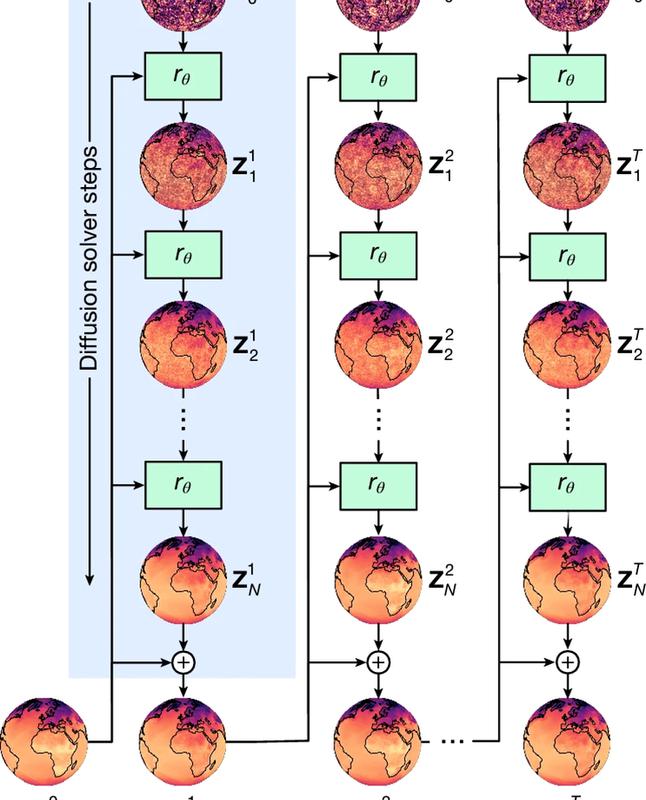GenCast AI

- 24 Dec 2024
In News:
Google’s GenCast AI is an advanced weather forecasting model developed by DeepMind that uses machine learning techniques to provide more accurate and longer-term weather predictions compared to traditional forecasting methods.
How GenCast Works:
- Training on Reanalysis Data:
- GenCast is trained on 40 years of reanalysis data (from 1979 to 2019). This data combines historical weather observations with modern weather forecasts, providing a comprehensive picture of past weather and climate conditions.
- Ensemble Forecasting with AI:
- Unlike traditional Numerical Weather Prediction (NWP) models, which run simulations based on physical laws and initial conditions, GenCast uses an ensemble forecasting approach where multiple predictions are generated by an AI model, not an NWP model.
- It produces a range of possible weather scenarios, each with different starting conditions, to reflect the uncertainty in weather forecasts.
- Neural Network and Diffusion Model:
- GenCast uses a neural network architecture with 41,162 nodes and 240,000 edges that process weather data. Each node accepts data, manipulates it, and passes it to another node, helping to refine and improve predictions.
- It uses a diffusion model, a type of AI model commonly used in generative AI. The model takes noisy input data, processes it through 30 refinement steps, and gradually produces a clearer forecast (de-noising the data).
- The result is a probabilistic forecast, such as "there's a 25% chance of rain in Chennai on December 25," rather than a deterministic forecast, which would provide exact quantities like "5 mm of rain."
- Faster Processing:
- The entire forecast process is incredibly efficient. GenCast can generate 50 ensemble forecasts at once with a spatial resolution of 0.25° x 0.25° (latitude-longitude) and temporal resolution of 12 hours.
- Using Google's TPU v5 units, it can produce these forecasts in just 8 minutes—far faster than traditional supercomputers, which can take several hours to run NWP simulations.
Key Features of GenCast:
- Better Performance on Extreme Weather: GenCast has shown superior accuracy in predicting extreme weather events, such as tropical cyclones, compared to traditional NWP models like those from the European Centre for Medium-Range Weather Forecasts (ECMWF).
- Probabilistic Forecasting: GenCast produces probabilistic forecasts, offering predictions like the likelihood of rain rather than precise measures, which helps with better preparation, especially for extreme weather events.
- Long-Term Forecasting: GenCast can generate forecasts for up to 15 days, which is longer than most traditional models, and is particularly useful for anticipating events like wind power generation and tropical cyclone tracking.
- Efficiency: GenCast's speed and resource efficiency set it apart from traditional NWP models, reducing forecast times dramatically.
Comparison with Traditional Weather Models:
- Numerical Weather Prediction (NWP): Traditional NWP models rely on solving complex physical equations to simulate the atmosphere and provide deterministic forecasts. These models require significant computational power and are typically limited to weather predictions for about a week.
- GenCast's Probabilistic Forecasts: In contrast, GenCast offers probabilistic predictions, making it better suited for providing early warnings about extreme weather, with better lead times for disaster preparation.
Future Developments:
While GenCast is impressive, Google acknowledges the importance of traditional NWP models for both supplying initial conditions and providing the foundational data needed to train AI models like GenCast. Ongoing collaboration with weather agencies is crucial to enhancing AI-based methods for weather prediction.
Overall, GenCast represents a significant leap forward in the use of AI for weather forecasting, with potential for greater accuracy, efficiency, and longer-term predictions compared to current methods.
